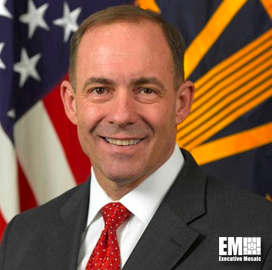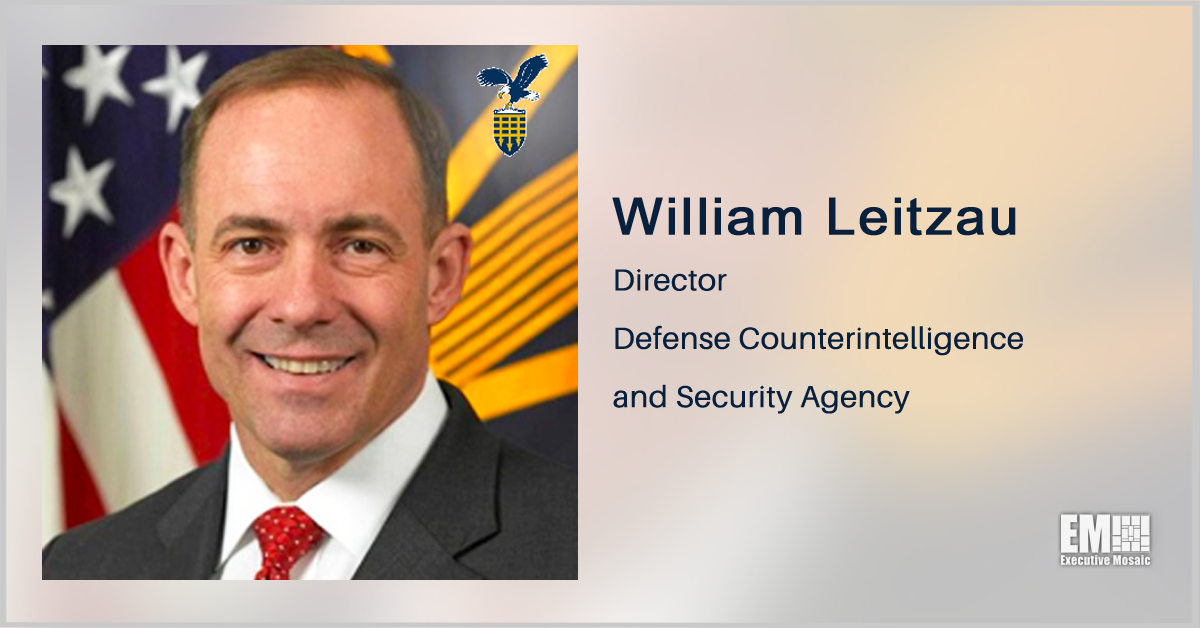During Potomac Officers Club’s Trusted Workforce Forum, elite private and public sector executives will discuss the future of Trusted Workforce 2.0, major initiatives and policies to accommodate future technology-driven Trusted Workforce capabilities and how private industry can assist with reducing the security clearance backlog.
William Lietzau, director of the Defense Counterintelligence and Security Agency (DCSA), will be featured as the keynote speaker.
To register for the Trusted Workforce Forum, and view other upcoming events, visit Potomac Officers Club’s Event Page.
The federal government has succeeded in reducing its backlog of security clearance investigations in recent years. The backlog peaked in 2018 with 725,000 but has declined to a steady 200,000.
The Defense Counterintelligence and Security Agency (DCSA) is attempting to further increase efficiency by developing the National Background Investigation Services (NBIS) that will replace legacy background investigation information technology (IT) systems.
The NBIS is a portion of the new Trusted Workforce 2.0 framework, which is intended to consolidate the security clearance process and address problems hampering the process of obtaining initial clearances and then moving cleared employees among agencies.
William Lietzau, DSCA’s director, explained at a May 26th roundtable discussion hosted by Rep. Gerry Connolly (D-Va.) that he hopes Trusted Workforce 2.0 will be fully operational and incorporate all clearances by the end of 2023. He also stated that the framework would enable continuous vetting of clearance holders.
The Trusted Workforce 2.0 will have more data sources for vetting applicants and clearance holders for damaging information. It will also replace the legacy background investigation system that is severely outdated. Some components of the legacy system even date back to 1984.
Along with straightforward digital modernization, Trusted Workforce 2.0 will accelerate clearance processes by preventing agencies from duplicating clearance work that other agencies have already performed. Meaning, agencies will be able to share clearance information with other organizations more easily.
Lietzau, who became DSCA’s director in March 2020, commented, “If we can all eventually get onto a singular system that has all the touchpoints, that will allow much more rapid checking data.”
“Whenever we have a holdup, it’s usually because we’re reaching out to some agency that doesn’t have all of its data put onto the system that we’re using. The benefit of NBIS will be that it will have all that data in one place.”
One potential issue that could hamper Trusted Workforce 2.0’s effectiveness is the issue of reciprocity. That is the process in which different agencies trust the security clearances granted by other agencies that enable employees to move quickly between them.
Agencies and departments are not required to join Trusted Workforce 2.0, but Marianna Martineau, assistant director for adjudications at DCSA, is optimistic that many agencies will choose to opt-in.
In addition, the more organizations join Trusted Workforce 2.0, the more employees can freely move between agencies without delays caused by different security clearance policies.
In a recent interview with Tom Temin, Lietzau reiterated that Trusted Workforce 2.0 is meant for the “Entire US government, it’s not just a DCSA initiative, this is really kind of an all-of-government initiative.”

Potomac Officers Club will also host an expert panel at the Forum, Moderated by Heather Green of DSCA, featuring Beth McGrath of Deloitte, David Buckley of KPMG Federal Services, Richard McComb of the Department of Homeland Security (DHS) and Jeffrey Huth of TransUnion.
As the federal workforce grows so do the challenges in ensuring proper clearance/vetting processes, federal leaders must invest time and resources to address workforce issues to create a trusted and efficient federal workforce.
Join Potomac Officers Club’s Trusted Workforce Forum to hear leading federal and industry officials discuss the future of Trusted Workforce 2.0, the 1-3-5 principle and ethical artificial intelligence concerns.
To register for the Trusted Workforce Forum, and view other upcoming events, visit Potomac Officers Club’s Event Page.






